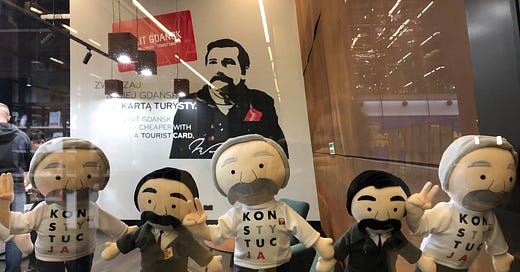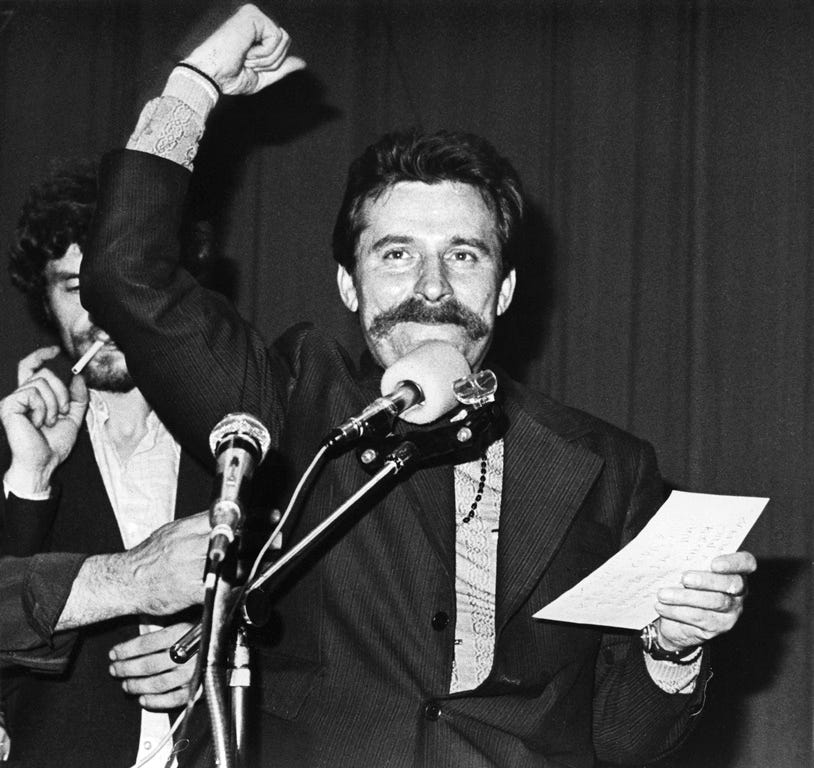I’m not going to lie. The main thing that drew me to Gdansk, Poland was the 43 euros it cost for a roundtrip ticket from Copenhagen. But as I was pondering whether I really wanted to put my life in the hands of an airline that had voluntarily chosen to name itself Wizz, I recalled the one thing I knew about Gdansk, which is that it was the birthplace of Solidarity, the shipyard-workers’ union whose strikes in the 1980s would push the first domino in what would eventually lead to the collapse of the Iron Curtain and the Soviet Union itself. The restoration of the billionaire kakocracy US election had happened a couple of weeks before, and suddenly, the idea of a weekend in a city that gave rise to a triumphant workers’ movement that successfully threw off the yoke of authoritarianism sounded like just the ticket.
I didn’t know a lot about Solidarity, mind you. I could picture the Solidarnosc logo, with the Polish flag rising jauntily from its slashed red letters. I knew there had been strikes, and maybe some violence, though I wasn’t so clear on the latter. And I knew about Lech Walesa, the electrician with the walrus mustache who led the movement and once it finally triumphed, became Poland’s first directly elected president. I thought of him as one of the 20th century’s true heroes.
I learned a lot more while I was in Gdansk, and I found traces of Walesa himself, even if they did come with some bittersweet lessons about heroes. But first, I had to get over the shock of the place itself.




